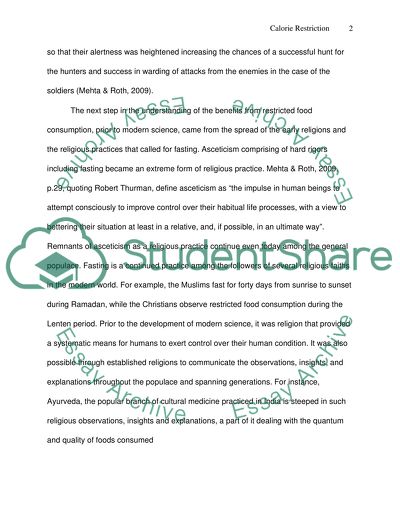Cite this document
(The Evidence in Support of Calorie Restriction Essay Example | Topics and Well Written Essays - 1750 words, n.d.)
The Evidence in Support of Calorie Restriction Essay Example | Topics and Well Written Essays - 1750 words. https://studentshare.org/environmental-studies/1414511-the-evidence-in-support-of-calorie-restriction
The Evidence in Support of Calorie Restriction Essay Example | Topics and Well Written Essays - 1750 words. https://studentshare.org/environmental-studies/1414511-the-evidence-in-support-of-calorie-restriction
(The Evidence in Support of Calorie Restriction Essay Example | Topics and Well Written Essays - 1750 Words)
The Evidence in Support of Calorie Restriction Essay Example | Topics and Well Written Essays - 1750 Words. https://studentshare.org/environmental-studies/1414511-the-evidence-in-support-of-calorie-restriction.
The Evidence in Support of Calorie Restriction Essay Example | Topics and Well Written Essays - 1750 Words. https://studentshare.org/environmental-studies/1414511-the-evidence-in-support-of-calorie-restriction.
“The Evidence in Support of Calorie Restriction Essay Example | Topics and Well Written Essays - 1750 Words”. https://studentshare.org/environmental-studies/1414511-the-evidence-in-support-of-calorie-restriction.


